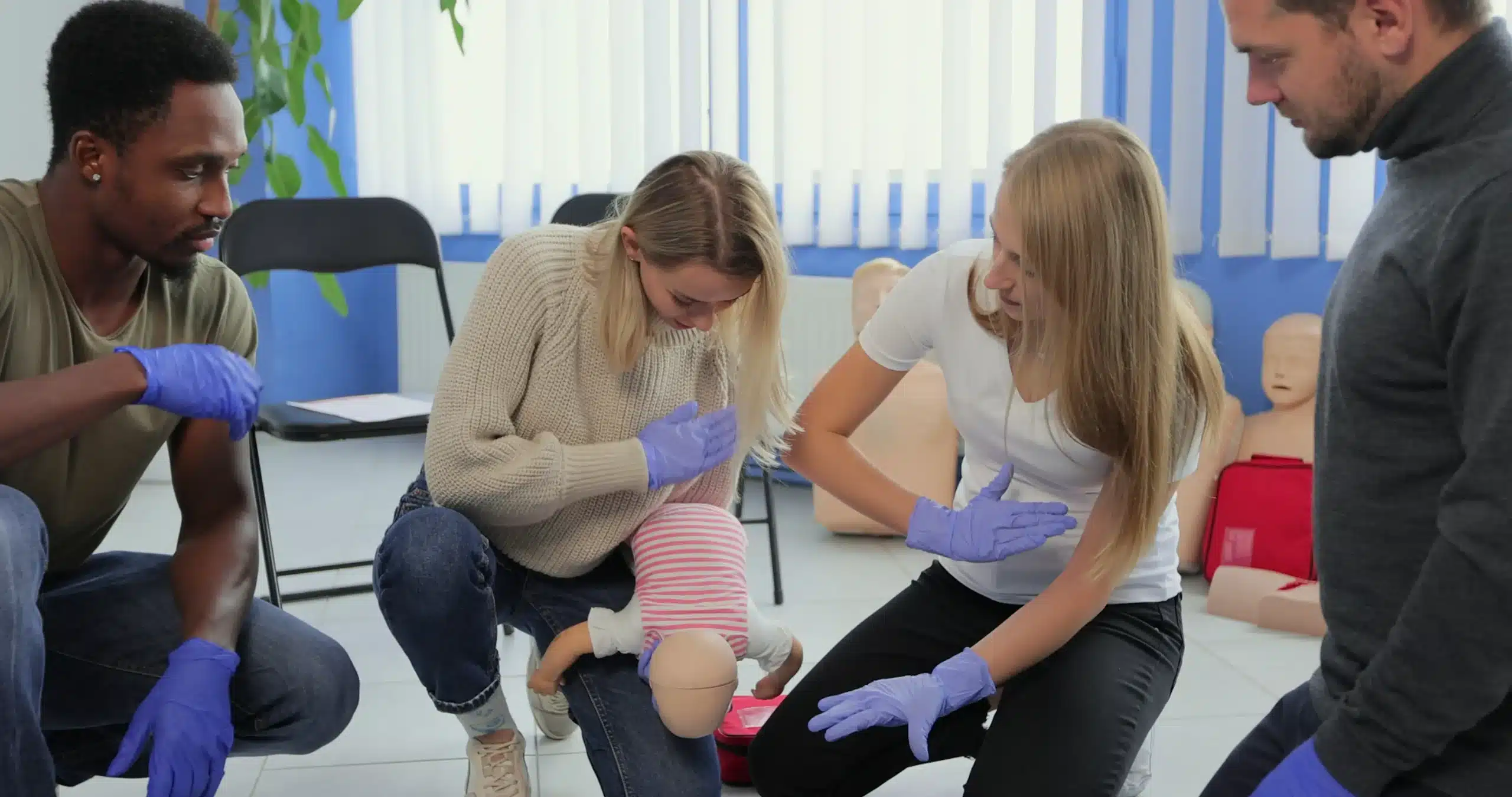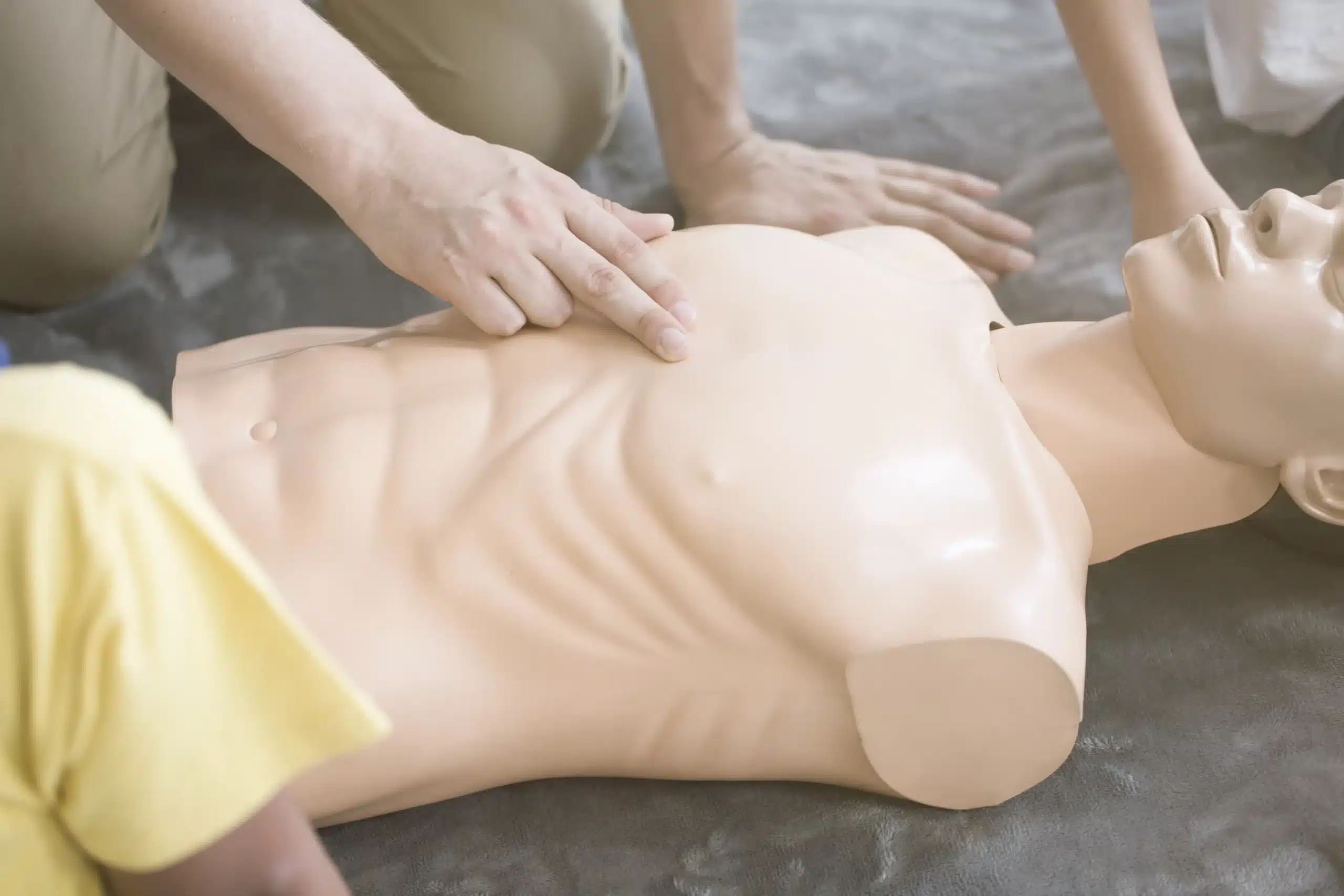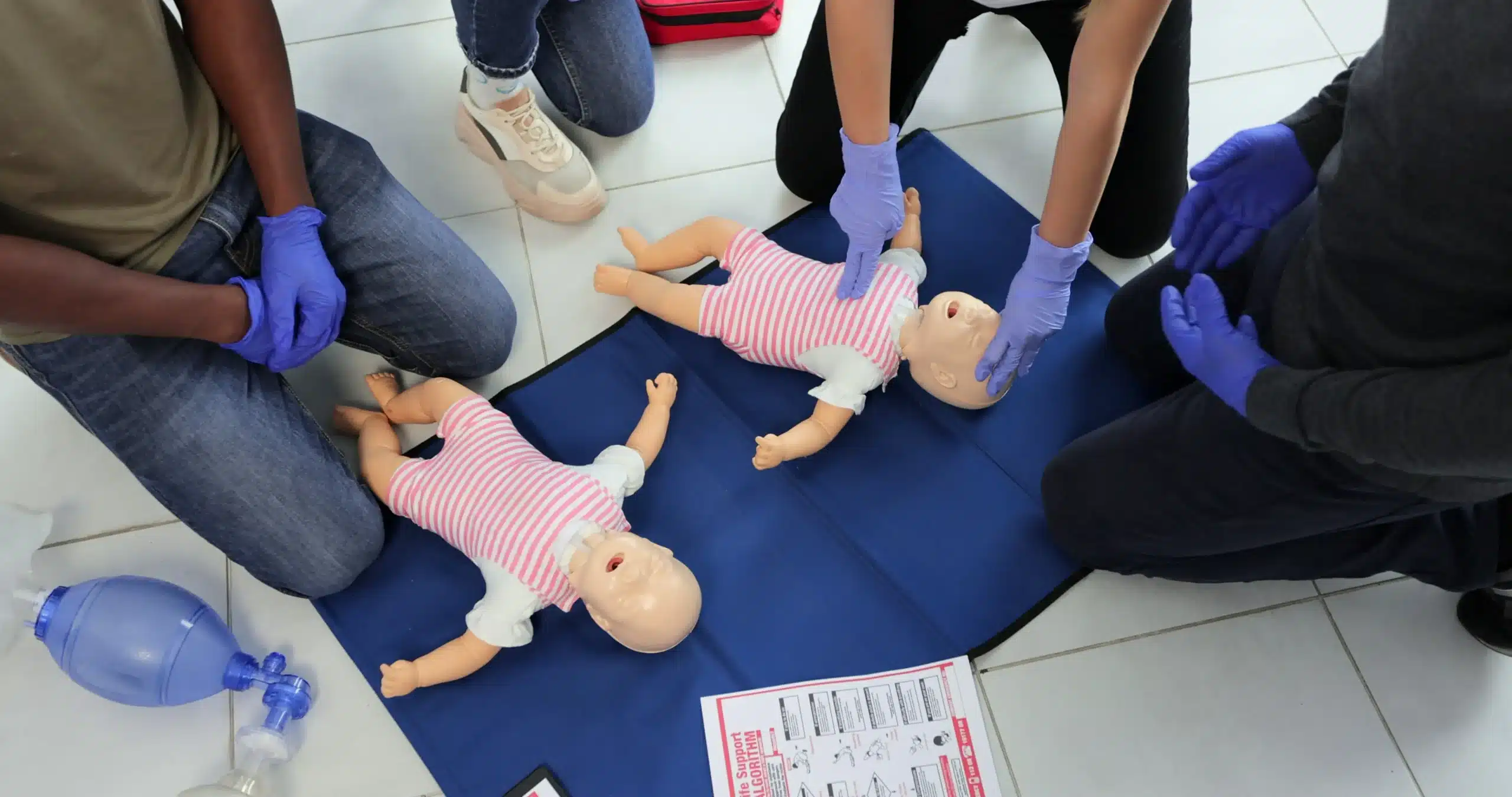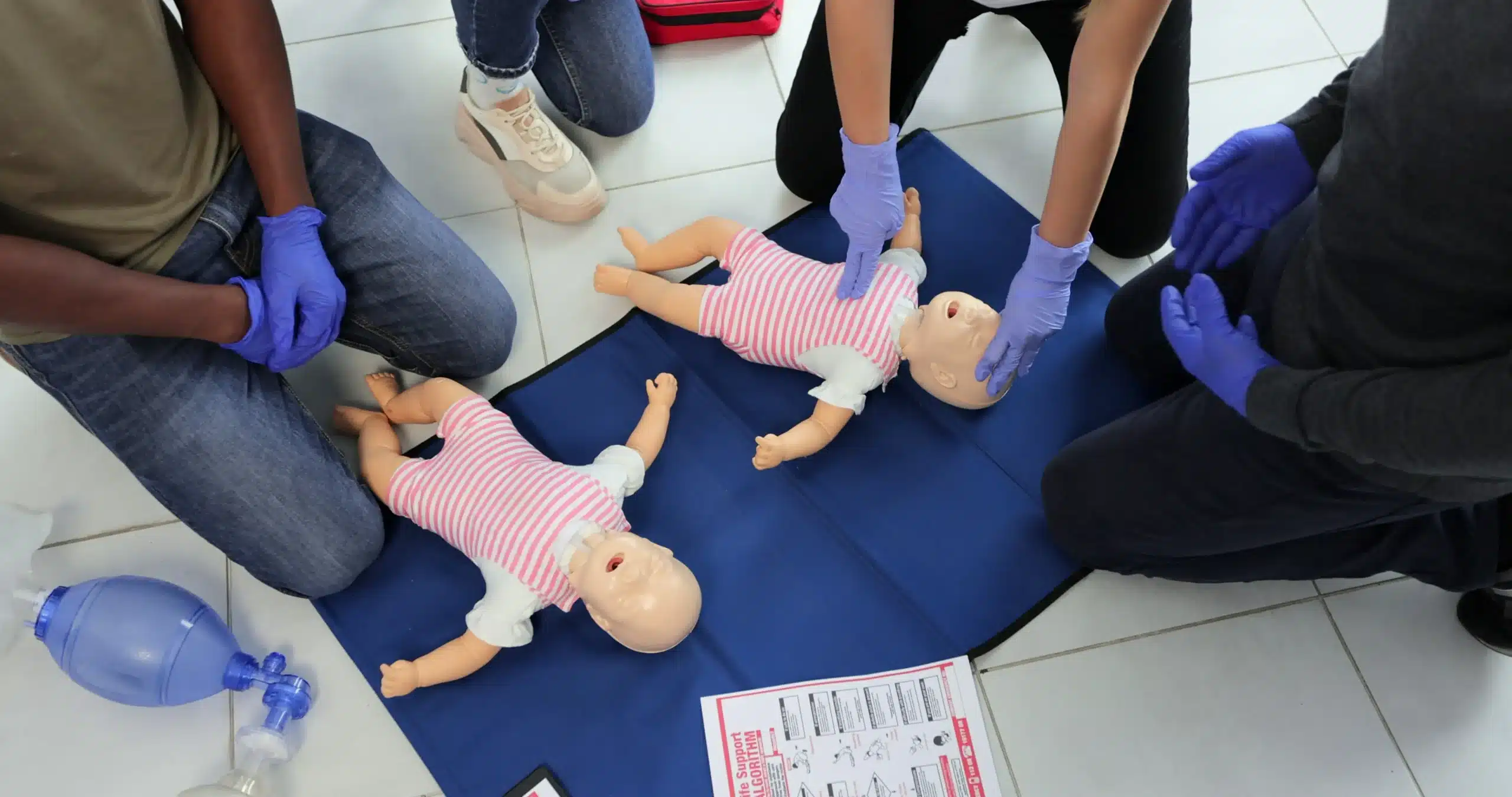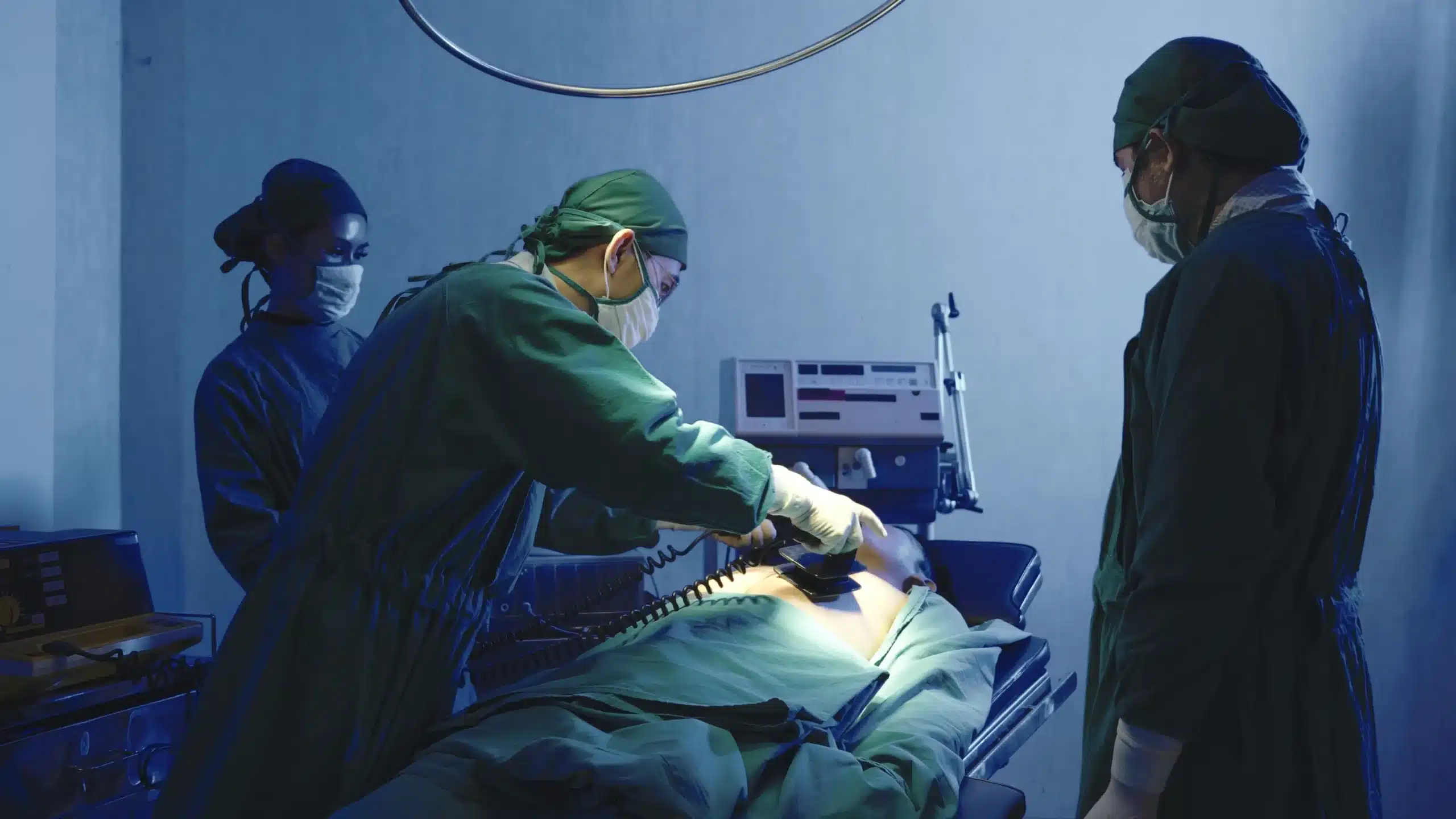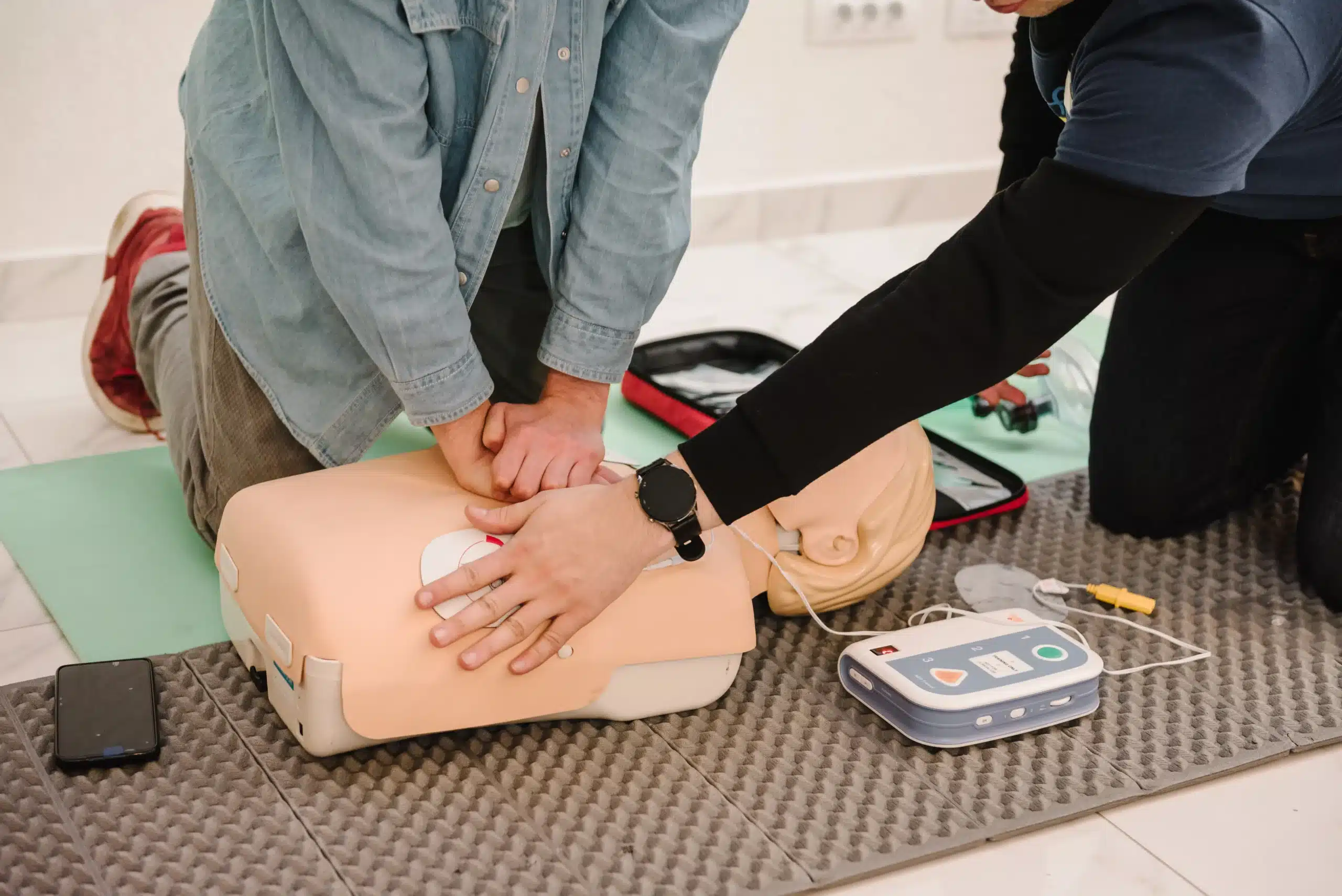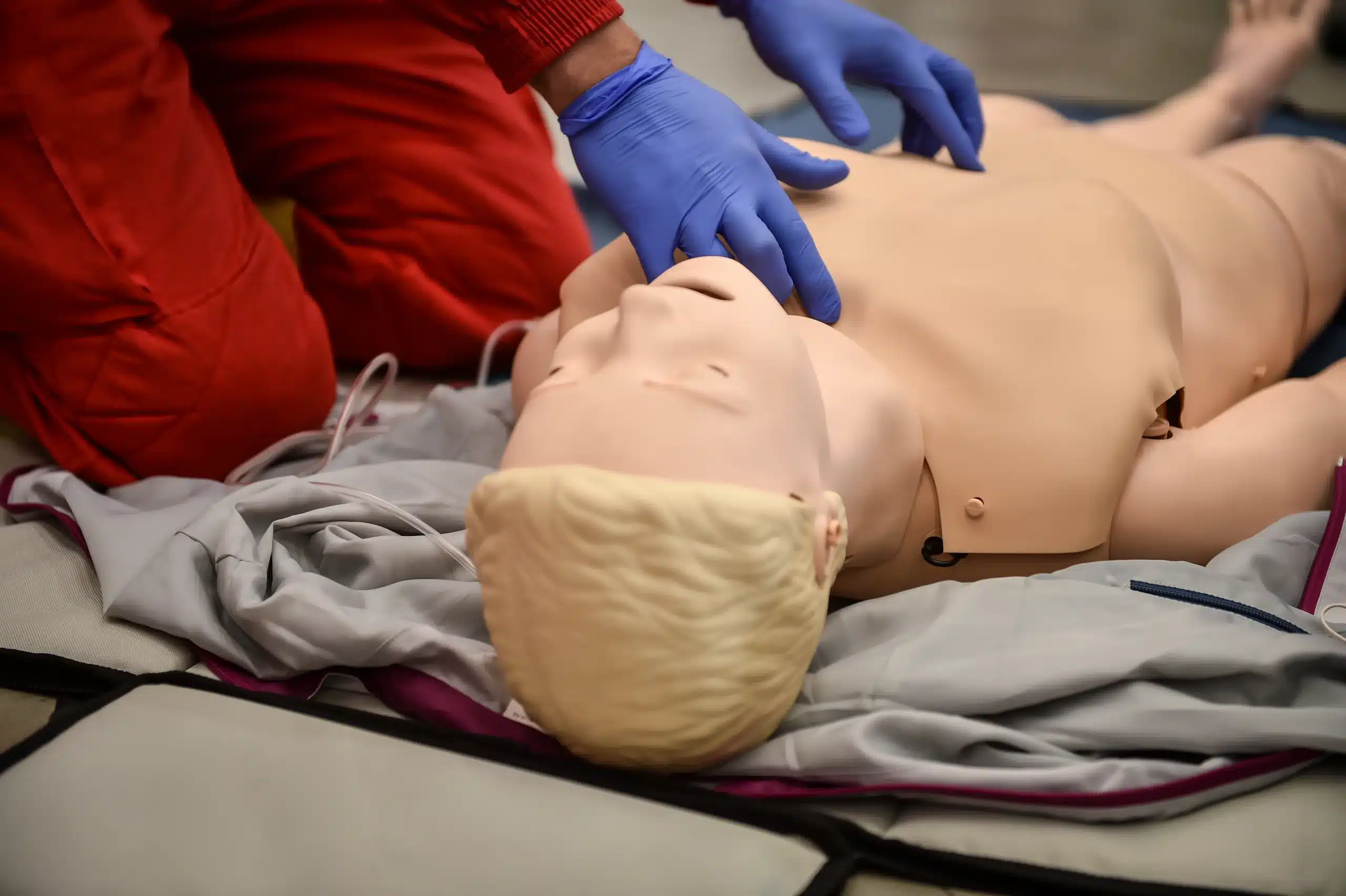As a healthcare provider, you know that every second counts in an emergency, especially when a child’s life is on the line. Pediatric Advanced Life Support (PALS) training empowers you with the specialized knowledge and skills to confidently manage pediatric emergencies. This goes beyond basic CPR, delving into the unique physiological differences between children and adults. If you’re in Berkeley and looking to enhance your skills, this guide will help you understand PALS, find the right certification course, and become a more effective healthcare professional. We’ll explore the benefits of pediatric advanced life support in Berkeley, the course structure, key skills taught, and how to choose the right training program. Let’s get started.
Key Takeaways
- PALS certification equips you with life-saving skills: It goes beyond basic CPR to address the unique needs of infants and children during emergencies, giving you the confidence to respond effectively.
- Finding the right course matters: Look for AHA-accredited providers with experienced instructors, a comprehensive curriculum, and flexible scheduling options that fit your lifestyle. Consider factors like cost, available resources, and the renewal process.
- Continued learning is crucial: Stay up-to-date with the latest guidelines and best practices by renewing your certification regularly. This ensures you’re always prepared to provide the highest quality care.
What is Pediatric Advanced Life Support (PALS)?
Pediatric Advanced Life Support (PALS) is a specialized training program designed to equip healthcare providers with the knowledge and skills to manage pediatric emergencies. It goes beyond basic life support (BLS) to address the unique physiological differences between children and adults. This specialized training is critical for ensuring the best possible outcomes for young patients facing life-threatening situations. Learn more about our PALS certification.
Definition and Importance
PALS focuses on a systematic approach to pediatric assessment, resuscitation, and stabilization. It emphasizes early recognition and intervention in respiratory and cardiac emergencies to improve survival rates and minimize long-term complications. This training is invaluable for healthcare professionals working in emergency departments, intensive care units, and other settings where they might encounter critically ill children.
Key Skills Learned in PALS Training
PALS courses use real-world scenarios and evidence-based guidelines to build confidence in performing life-saving interventions. Participants learn to recognize and manage respiratory distress, cardiac arrest, shock, and other pediatric emergencies. The program also emphasizes effective teamwork and communication in high-pressure situations, ensuring coordinated and efficient responses during critical events. We offer a range of American Heart Association courses.
PALS Certification Prerequisites
Before enrolling in a PALS course, participants must possess a current pediatric BLS certification. This foundational knowledge of basic life support techniques is essential for building upon the advanced concepts covered in PALS. This prerequisite ensures that all participants have a solid understanding of core life-saving procedures before progressing to more complex pediatric care. We also offer BLS certification.
Common PALS Misconceptions
One common misconception is that PALS certification is only relevant for doctors and nurses. In reality, it benefits a wide range of healthcare professionals, including paramedics, respiratory therapists, and physician assistants. Another misconception is that PALS certification is a one-time event. Like many healthcare certifications, PALS requires periodic renewal to ensure providers stay up-to-date with the latest guidelines and best practices. Check out our low price guarantee.
Top PALS Certification Providers in Berkeley
Finding the right PALS certification course can feel overwhelming, so I’ve compiled a list of reputable providers in Berkeley to help you get started. Each offers a slightly different learning experience, so take a look and see which one best fits your needs.
Safety Training Seminars
Safety Training Seminars offers AHA-certified PALS courses designed for healthcare professionals who work with infants and children. They emphasize building a strong foundation in pediatric emergency care. Visit their website for course schedules and pricing.
American Heart Association (AHA) Affiliated Centers
You can find official AHA PALS certification classes at various locations throughout Berkeley. These courses follow the latest AHA guidelines and are designed for healthcare providers. AHA-affiliated centers often offer other courses like BLS and ACLS, which is helpful if you need multiple certifications.
American Red Cross
The American Red Cross also offers a Pediatric Advanced Life Support (PALS) certification program. While not directly affiliated with the AHA, the Red Cross program is considered scientifically equivalent and focuses on practical skills and real-world scenarios.
Bay Area CPR
Bay Area CPR offers a variety of AHA-certified courses, including PALS. They frequently have flexible scheduling options, which can be helpful for busy professionals. Check their website or contact them to discuss scheduling.
Berkeley CPR Classes
Berkeley CPR Classes provides AHA-certified PALS training with a focus on hands-on learning. With courses offered daily at multiple locations across Northern California, finding a convenient class is easy.
PALS Course Structure and Content
PALS courses blend online learning with hands-on skills sessions. This flexible format makes training accessible for busy professionals and parents. Let’s break down each component:
Online Learning Components
The online portion lets you learn essential concepts at your own speed. You’ll cover key PALS topics through interactive modules, videos, and quizzes. This self-paced online learning allows you to fit the training around your schedule and review material as needed.
In-Person Skills Assessment
After completing the online modules, you’ll participate in an in-person skills session. This involves demonstrating your learned skills on a voice-assisted mannequin. Instructors are available remotely to guide you through the skills test and answer any questions.
Key Topics Covered
PALS training goes beyond basic CPR to focus on the specific needs of infants and children. You’ll learn to recognize and respond to respiratory emergencies, cardiac arrest, and other pediatric emergencies. The course covers the physiological differences between children and adults, helping you adapt your life-saving techniques.
Course Duration and Format
The online component typically takes 3–4 hours to complete, while the in-person skills assessment lasts approximately 30 minutes. This efficient format ensures you receive comprehensive training without a significant time commitment. You can find more information on PALS course structure and format from various providers.
Hands-on Practice
PALS courses emphasize hands-on learning. You’ll have ample opportunity to practice essential skills using realistic simulation manikins. This practical experience builds your confidence and prepares you to respond effectively in real-life emergencies. Hands-on training is crucial for mastering the skills needed to provide effective pediatric care.
Cost and Value of PALS Certification
When considering PALS certification, understanding the costs and the value it brings to your career is essential. Let’s break down the typical pricing, potential discounts, and how this investment can pay off.
Average Course Pricing
PALS certification course costs vary based on location, format (online or blended learning), and the training center. For example, the total cost for the HeartCode PALS certification through Safety Training Seminars is $290, and you receive your certification card the same day you complete both portions. This price generally covers online learning materials, the in-person skills session, and certification fees. Contact your chosen provider directly for the most up-to-date pricing.
Discounts and Promotions
Many training centers offer discounts, especially for group registrations. If you’re certifying your entire team, ask about group discounts at Safety Training Seminars. This can significantly reduce the per-person cost, making training more accessible for larger organizations. Also, keep an eye out for periodic promotional offers.
Provider Cost Comparison
While cost is a factor, don’t let it be the only one. The quality of instruction and adherence to the latest American Heart Association guidelines are paramount. Safety Training Seminars prioritizes high-quality training based on current guidelines and resources, giving you confidence in your skills. When comparing providers, consider instructor experience, course materials, and overall reputation. A slightly higher cost might be worth a more comprehensive learning experience.
Return on Investment
Earning your PALS certification is an investment in your career. For healthcare providers, PALS certification can open doors to new opportunities and potentially increase earning potential. It demonstrates your commitment to high-quality patient care and enhances your credibility. Beyond the financial benefits, the skills and confidence you gain can make a real difference in emergencies, making PALS invaluable.
Instructor Qualifications and Course Quality
When your child’s safety is on the line, you want the best possible care. Choosing a high-quality PALS course means understanding what makes an instructor truly qualified and how to assess the overall course quality. It’s about more than just a certificate—it’s about equipping yourself with the skills and confidence to handle pediatric emergencies effectively.
AHA Certification Requirements
A solid starting point is looking for courses from AHA-accredited providers. This accreditation ensures the program meets the American Heart Association’s rigorous standards. Experienced instructors are crucial. They bring real-world insights and can offer practical advice that goes beyond the textbook. A comprehensive curriculum, covering everything from basic life support to advanced interventions, ensures you’re prepared for a wide range of pediatric emergencies. Finally, consider the learning options. Does the course offer flexible scheduling or blended learning formats that fit your busy life? These factors all contribute to a valuable learning experience. Safety Training Seminars offers AHA-compliant PALS courses, guaranteeing you receive training based on current guidelines.
Experience in Pediatric Emergency Care
PALS certification provides specialized knowledge of pediatric emergencies that goes beyond basic CPR training. It covers the unique physiological differences between children and adults, allowing you to tailor your interventions appropriately. Look for instructors with a strong background in pediatric emergency care. Their experience translates into better instruction and more realistic scenarios during practice sessions. This hands-on experience is invaluable when it comes to applying your knowledge in a real-life emergency. PALS courses delve into the specifics of pediatric physiology and emergency response.
Continuing Education and Recertification
Medicine is a constantly evolving field. Even after you receive your PALS certification, staying current with the latest guidelines and best practices is essential. Remember to renew your PALS certification every two years. Continuing education courses and regular practice can help you maintain your skills and ensure you’re always prepared to provide the best possible care.
Evaluating Course Reputation
Before committing to a course, take some time to research the provider’s reputation. Online reviews and testimonials can offer valuable insights into the quality of instruction, the course materials, and the overall learning experience. Ask providers about their instructors’ credentials, course content, and any continuing education opportunities they offer. A reputable provider will be transparent and happy to answer your questions. Safety Training Seminars prioritizes high-quality training based on the latest guidelines.
Benefits of PALS Certification
Earning your PALS certification offers several benefits, from providing better patient care to advancing your career. Let’s explore some key advantages:
Enhanced Emergency Response Skills
PALS certification equips healthcare providers with the skills to confidently respond to pediatric emergencies. The training covers various critical situations, from respiratory distress to cardiac arrest, giving you the knowledge and practical skills to assess, stabilize, and manage pediatric patients. Through realistic scenarios and evidence-based guidelines, PALS courses build confidence in performing life-saving interventions. This PALS overview offers additional details on the skills you’ll gain.
Career Advancement
In the competitive healthcare field, PALS certification gives you an edge. It shows a commitment to professional development and the ability to handle critical situations, making you a valuable asset to any healthcare team. Many employers prefer or require PALS certification for roles involving pediatric care. It can create opportunities for career growth and potentially increase your earnings. This resource on PALS certification myths offers helpful information.
Improved Patient Outcomes
At its core, PALS certification aims to improve patient outcomes. Mastering the skills and knowledge taught in PALS courses better equips healthcare providers to deliver high-quality care during pediatric emergencies. Early and effective intervention can significantly impact a child’s chances of survival and long-term recovery. Resources like the Heart and Stroke Foundation of Canada emphasize PALS’s importance in improving patient outcomes. This article also provides insights into the practical application of PALS skills.
Increased Confidence
Beyond technical skills, PALS training emphasizes critical thinking, problem-solving, and teamwork—essential in high-pressure emergency situations. This well-rounded approach prepares you for emergencies and boosts your confidence in responding effectively. The American Red Cross offers more information on the benefits of PALS certification. Knowing you can handle a crisis makes all the difference when every second counts.
Choosing the Right PALS Course
Finding the right PALS course isn’t just about ticking a box; it’s about investing in your skills and confidence as a healthcare provider. Here’s what to consider:
Factors to Consider
First and foremost, ensure your chosen course is accredited by the American Heart Association (AHA). This guarantees the curriculum meets the latest standards. Look for providers like Safety Training Seminars, known for their commitment to high-quality PALS instruction. Beyond accreditation, consider the instructors’ experience. Seasoned professionals can offer invaluable insights and practical guidance. A comprehensive curriculum that covers all the key PALS components is also essential.
Scheduling Options
Life gets busy, so flexible scheduling is a must. Many providers offer PALS courses throughout the week, often with various time slots. Check if weekend or evening classes are available if those work better for you. Safety Training Seminars offers a range of scheduling options.
Support Resources
A good PALS course should offer more than just classroom instruction. Look for programs that provide access to additional study materials, practice tests, and instructor support. These resources can significantly improve your understanding of the material. Knowing you have access to help can make a real difference in your learning experience. Safety Training Seminars is known for its commitment to student success.
Renewal Process
PALS certification is valid for two years. When choosing a course, consider the renewal process. Some providers offer streamlined recertification options, making it easier to stay current. Knowing the renewal requirements upfront can save you time. The AHA provides resources on maintaining your PALS certification.
Staying Updated on Guidelines
Pediatric care is constantly evolving. Staying up-to-date with the latest guidelines is crucial for providing effective care. Regularly renewing your PALS certification ensures you’re equipped with the most current knowledge. This commitment to ongoing learning benefits your career and enhances the quality of care you provide. The AHA regularly updates its PALS guidelines.
Related Articles
- AHA PALS Classes in Alameda, CA – Alameda CPR Classes
- Online PALS Classes Alameda: Your Complete Guide – Alameda CPR Classes
- PALS HeartCode in Alameda: Flexible & Fast AHA Cert – Alameda CPR Classes
Frequently Asked Questions
Why is PALS certification important? PALS certification is crucial for healthcare providers who might encounter pediatric emergencies. It provides the advanced skills and knowledge needed to effectively manage life-threatening situations in infants and children, ultimately improving patient outcomes. It’s about having the confidence to act quickly and decisively when every second counts.
What are the key skills learned in a PALS course? A PALS course teaches healthcare providers a systematic approach to pediatric assessment, resuscitation, and stabilization. You’ll learn to recognize and manage respiratory distress, cardiac arrest, shock, and other pediatric emergencies. The training also emphasizes effective teamwork and communication, vital in high-pressure situations.
Who should get PALS certified? While often associated with doctors and nurses, PALS certification benefits a wide range of healthcare professionals, including paramedics, respiratory therapists, physician assistants, and anyone regularly involved in pediatric care. It’s a valuable asset for anyone who wants to be prepared to help a child in need.
How much does PALS certification cost, and are discounts available? PALS course costs vary depending on the provider, location, and course format. Many providers offer discounts, especially for group registrations. It’s always a good idea to contact the provider directly to inquire about specific pricing and any available discounts. Investing in PALS is investing in your ability to provide the best possible care.
How can I find a reputable PALS certification provider? Look for providers accredited by the American Heart Association (AHA). This ensures the course meets the latest standards and guidelines. Reading online reviews and testimonials can also give you valuable insights into other students’ experiences. Don’t hesitate to ask potential providers about their instructors’ credentials and experience. A reputable provider will be happy to answer your questions.


